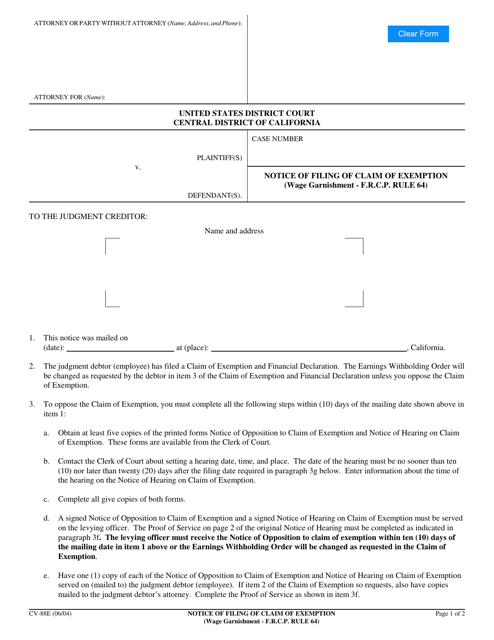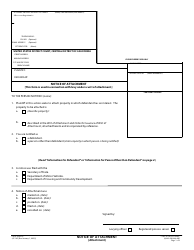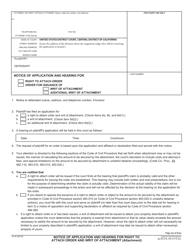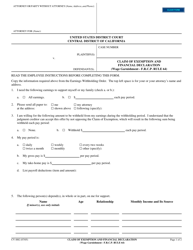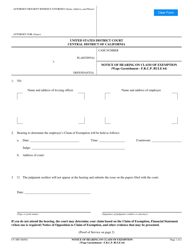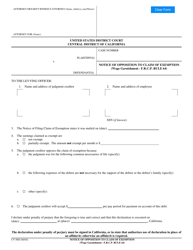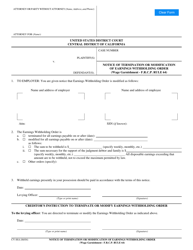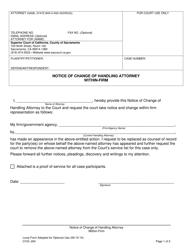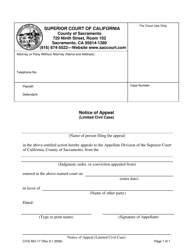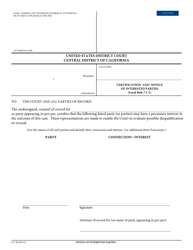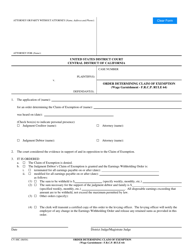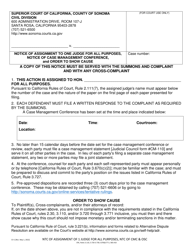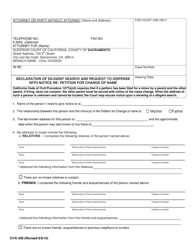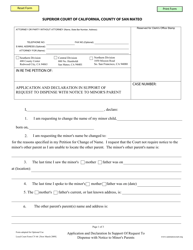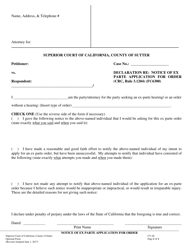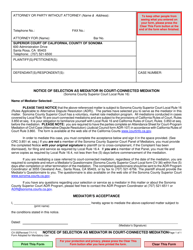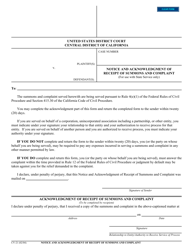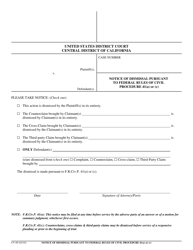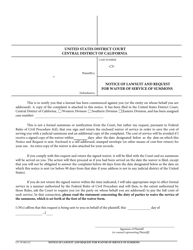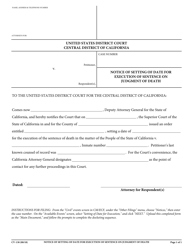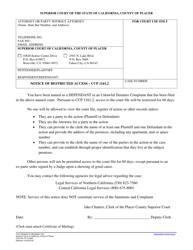Form CV-88E Notice of Filing of Claim of Exemption (Wage Garnishment - F.r.c.p. Rule 64) - California
What Is Form CV-88E?
This is a legal form that was released by the United States District Court - Central District of California - a government authority operating within California. As of today, no separate filing guidelines for the form are provided by the issuing department.
FAQ
Q: What is CV-88E?
A: CV-88E is the form name for Notice of Filing of Claim of Exemption (Wage Garnishment - F.r.c.p. Rule 64) in California.
Q: What is the purpose of CV-88E?
A: The purpose of CV-88E is to notify the court and other parties that you are claiming an exemption from wage garnishment under the Federal Rules of Civil Procedure Rule 64.
Q: What is wage garnishment?
A: Wage garnishment is a legal process in which a portion of an individual's wages are withheld by their employer and paid directly toward a debt or judgment.
Q: What is a claim of exemption?
A: A claim of exemption is a legal document that asserts that certain funds or property are exempt from being taken to satisfy a debt or judgment.
Q: Who can file CV-88E?
A: Anyone subject to a wage garnishment in California who believes they qualify for an exemption can file CV-88E.
Q: What is F.r.c.p. Rule 64?
A: F.r.c.p. Rule 64 refers to Rule 64 of the Federal Rules of Civil Procedure, which governs the process of garnishment and exemptions in federal court cases.
Q: What should I do if I want to claim an exemption from wage garnishment?
A: If you want to claim an exemption from wage garnishment, you should complete and file the CV-88E form with the court and serve it on the other parties involved.
Q: Can I claim multiple exemptions on CV-88E?
A: Yes, you can claim multiple exemptions on CV-88E if you believe you qualify for more than one exemption category.
Q: What happens after I file CV-88E?
A: After you file CV-88E, the court will review your claim and determine if you qualify for the exemption. The other parties may also have the opportunity to object to your claim.
Form Details:
- Released on June 1, 2004;
- The latest edition provided by the United States District Court - Central District of California;
- Easy to use and ready to print;
- Quick to customize;
- Compatible with most PDF-viewing applications;
- Fill out the form in our online filing application.
Download a fillable version of Form CV-88E by clicking the link below or browse more documents and templates provided by the United States District Court - Central District of California.
